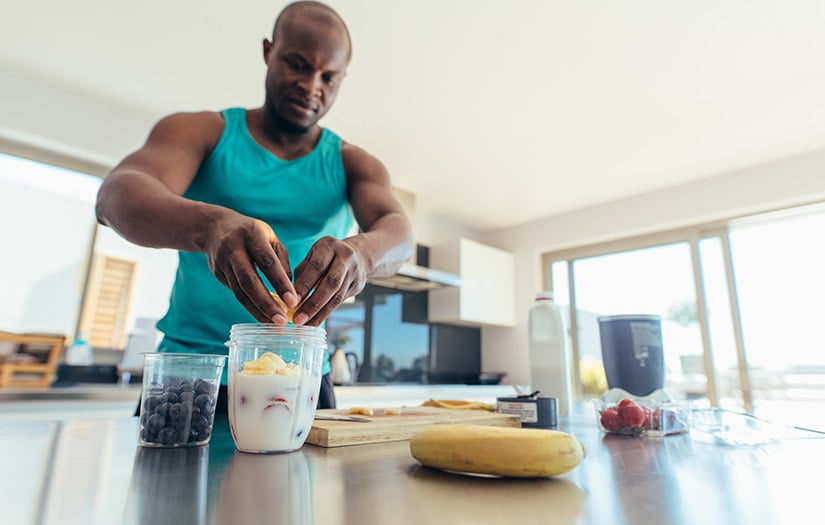Competitive athletes know every slight edge over a rival can make a big difference on the field, court, or track. That edge makes it worth the extra time running through drills, strength training, or zeroing in on nutrition. But understanding sports nutrition isn't only beneficial to top-tier athletes or those who train athletes, youth sports coaches, and the like. Even recreational runners, cyclists, and gym-goers can improve overall performance and wellbeing with a bit of sport-specific dietary guidance.
What Is Sports Nutrition?
Sports nutrition uses eating habits to enhance athletic performance, according to Jackie Kaminsky, RDN.
Here's how: When you lift weights or run a certain distance, your body adapts to that activity or stimulus over time. In exercise science terminology, this is known as metabolic adaptation. To run faster or lift heavier, you need to introduce new stimuli constantly. Sports nutrition involves using nutritional science and exercise mechanics to understand better and manipulate these adaptations, promoting enhanced performance, Kaminski says.
Dietitians help tailor sports nutrition to the athlete they’re working with. For example, they might start with broad changes, like adjusting micronutrients (carbs, protein, and fat) to strategically fuel a workout. Or they might get more precise by modifying an athlete's percentages of certain essential nutrients for specific benefits, such as more magnesium to encourage better sleep.
But no matter the athlete, the goal of sports nutrition is, well, sports. General nutrition focuses on dietary strategies that boost day-to-day health. Sports nutrition emphasizes nutrient timing and strategies that will improve athletic performance and promote recovery, Kaminski says.
The Best Pre-Workout Snacks
Imagine scarfing down a giant burger or milkshake right before a workout or game. Best-case scenario: Your performance suffers. Worst-case scenario: You see your entire meal in reverse.
A central theme of sports nutrition is choosing the best, most energizing, and easily digestible meals before training. About an hour before you exercise, the priority is simple carbohydrates, Kaminski says. These foods will give you some quick energy with little risk of digestive stress.
"I love each of these because they include a rich source of simple carbohydrates," Kaminski says. "If you're someone who trains at really high intensities and doesn't enjoy having a full stomach before training, these are great options to provide your muscles with some energy, without the feeling of a full belly." She recommends:
1. Oatmeal with fruit and honey
2. Banana with peanut butter
3. Protein waffle
The Best Post-Workout Meals and Snacks
Promoting recovery after a workout is just as crucial as building energy beforehand. The priority of your post-workout meal is protein, paired with some carbohydrates and healthy fat.
“I like to consume anything that is high in protein (at least 30 grams) and also contains a rich source of carbohydrates to replenish muscle glycogen, promote recovery, re-build muscle tissues and reduce soreness,” Kaminski says. She suggests trying:
1. Protein smoothie with berries and almond butter
2. Chicken and potatoes
3. Salmon and rice
















